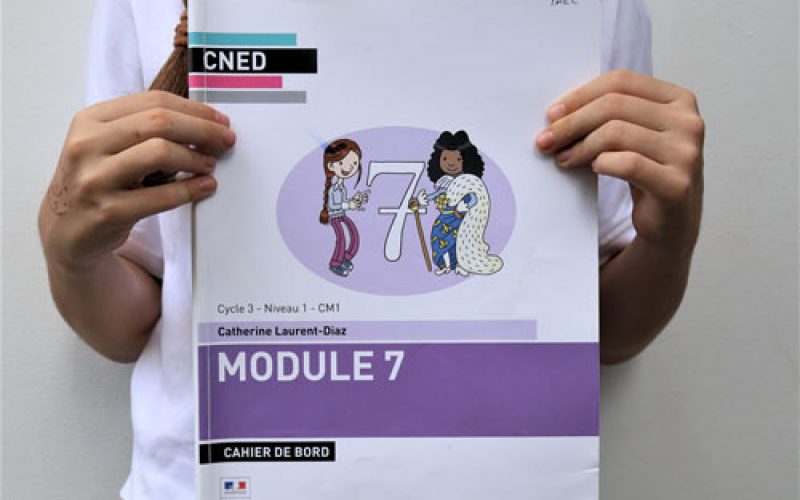
This “Cycle 3” connects the last two years of primary school and the first year of secondary school with the aim of reinforcing the basics of knowledge, skills and culture.
Cycle 2 enabled the acquisition of reading and writing skills and competencies. This Cycle consolidates these acquisitions to enable students to have a diversified use of reading and writing.
Oral language, and in general language proficiency continues to be emphasized to ensure that all students have the necessary reading and writing autonomy to succeed in secondary school.
Oral comprehension, reading and writing comprehension, and understanding how the language works, exposure to literature.
Find all the details of the program here.
Cycle 3 aims to deepen the mathematical concepts already acquired and deepen the understanding of mathematical concepts, consolidating the automation of the written calculation techniques introduced previously (addition, subtraction and multiplication) as well as the results and calculation procedures. The programme also introduces new concepts such as decimals, proportionality and areas, volume, angles, etc.
understanding, modeling, reasoning, calculating, and communicating mathematical information. Specific focus is on space and geometry, numbers and calculation, and measuring.
Find all the details of the program here.
Students continue to explore their relationship to time and space in a progressive and more explicit construction, based on the contributions of history and geography, with civic and cultural objectives.
– Developing geographical and historical references
– Reasoning and justifying processes and choices
– Learn how to obtain information in the digital world
– Understand a document
– Practice different languages in history and geography
Find all the details of the program here.
In Cycle 2, the student explored, observed, experienced, and questioned the world around him/her . In this Cycle, the concepts already discussed are revisited to move, starting from concrete information, towards more generalization and abstraction.
The construction of knowledge and skills, through the implementation of various scientific and technological approaches and the discovery of the history of science and technology, introduces the distinction between what is science and technology and what falls under opinion or belief. Topics studied are movement, energy, information, diversity and functioning of living organisms, planet Earth.Oral language is the priority. It is organized around simple comprehension and expressive tasks, as well as an introduction to the written foreign language.
– Scientific and technological methodology
– Design, create, realize using acquired methodology and tools
– Use digital tools
– Acquire ethical and responsible behaviors
– Learn how to locate oneself in space and time
Find all the details of the program here.
Throughout schooling, physical education and sports aims to train a lucid, autonomous, physically and socially educated citizen, with the aim of living together. It brings children and adolescents to look for well-being and to care about their health. It ensures the inclusion in the classroom of students with special educational needs or disabilities. Physical education and sports introduces the pleasure of sports practice.
motor skills, body and artistic expression, physical and sport practice, learning about rules and responsibilities, maintaining health through regular physical activity.
Find all the details of the program here.
In this Cycle, foreign language teaching aims at acquiring skills and knowledge to use it more effectively and confidently. The objective is to reach the A1 level of the Common European Framework of Reference for Languages (CEFR) in the five linguistic activities. Language studies focus on the person and daily life, as well as geographical, historical and cultural references of the language studied.
listening and understanding, speaking, writing, interacting in a foreign language, discovering the cultural aspects of a foreign language.
Find all the details of the program here.
During this Cycle, art education builds on previous acquisitions so that the student can engage in a more independent practice of art and more autonomous analysis of art, including encouraging the creativity of the student. Learning is fed by the introduction of more precise knowledge and by more artistic production and understanding of art work presented.
experimenting, producing, and creating artistic projets, self-expression, self-analysis in artistic production, be sensitive to the visual arts and art in general.
Find all the details of the program here.
The multidisciplinary and transversal teaching of the history of the arts structures the student’s artistic culture by acquiring references from the various and major artistic works and currents of the past and the present, and by providing methods to situate them. in space and time, interpret and relate them.
giving a reasoned opinion on what a work of art represents or expresses; extracting and expressing the main technical and formal characteristics of a work of art; relating the characteristics of a work of art to the historical and cultural context of its creation; finding one’s way around a museum, a place of art, a heritage site.
Find all the details of the program here.
Cycle 3 focuses on perception and production.
singing and interpreting; listening, comparing, and commenting; exploring, imagining and creating….
Find all the details of the program here.
Moral and civic education aims at the acquisition of a moral and civic culture and a critical spirit whose aim is to develop the awareness of the students of their responsibilities in their personal and social life. The aim is to acquire a moral conscience by identifying and expressing emotions and feelings. The student will also become aware of the rule of law and the meaning of the rules for living together in a society, as well as the judgment that makes it possible to understand and discuss the moral choices encountered by each person during his life. There will be an emphasis on the spirit of autonomy, cooperation and responsibility towards others.
Find all the details of the program here.
Sources : CNED and Ministère de l’éducation nationale française websites.